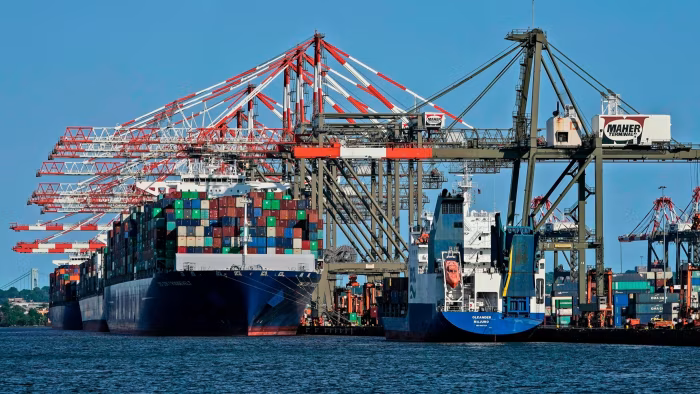Business groups are warning of a possible strike at nearly three dozen US ports, which could severely disrupt supply chains and raise consumer prices just weeks before the upcoming election, Financial Times reports.
The International Longshoremen’s Association (ILA), representing 25,000 dockworkers, has indicated they may walk off the job if a new agreement with the US Maritime Alliance is not reached by the contract expiration on September 30.
The contract covers all ports from Maine to Texas, including major hubs like New York, Savannah, Houston, Miami, and New Orleans. These ports account for approximately 41% of the nation’s port volume, and their closure could have a “devastating impact” on the US economy, according to a coalition of 177 trade groups.
Business leaders have been closely monitoring the labor negotiations since 2021, but anxiety heightened after discussions stalled in June over issues related to automation at the Port of Mobile. Although many expected federal intervention similar to the prevention of a freight rail strike in 2022, President Joe Biden announced last week that he would not intervene in the port labor dispute.
This announcement has intensified concerns among industry leaders. stated Tom Madrecki, vice-president of the Consumer Brands Association.
“There’s a lot of saber-rattling… and we have to be prepared that there could be [a strike]… it’s going to have a really serious impact on the economy,” stated Tom Madrecki, vice-president of the Consumer Brands Association.
If a strike occurs, businesses fear significant increases in the costs of importing materials and exporting products, which would likely be passed on to consumers. Retailers, restaurants, manufacturers, and food producers have urged the Biden administration to reconsider its stance, citing the potential for inflation and supply shortages.
Historically, labor disruptions at US ports can have substantial economic repercussions. The last major work stoppage occurred in 2002, resulting in an 11-day lockout that cost approximately $1 billion each day and led to months of backlogs.
While the ILA has been preparing for the possibility of a strike, the US Maritime Alliance expressed disappointment over the stalled negotiations and stated its readiness to resume talks. The potential impact on the food supply chain is also a concern, although industry representatives expressed confidence in their ability to adapt.








